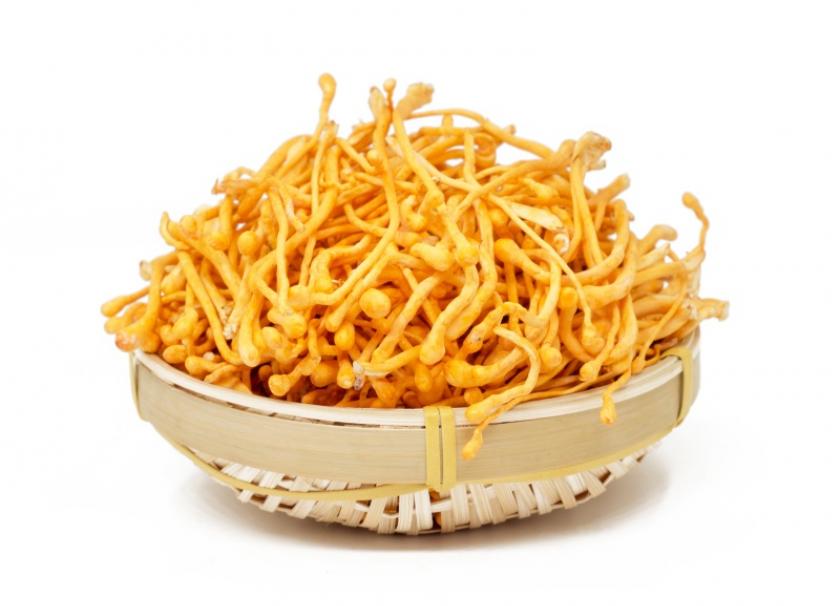
Mushrooms for wellness
You may have heard about the fascinating discovery that trees can communicate with each other. What’s the secret? The mycelia - tiny strands of fungus - in the soil form a vast underground network through which trees send chemical signals to their neighbors.
The mycelia differs from the fruiting body of the mushroom, which is the reproductive component that contains spores and is thought to be higher in Beta Glucans.
If fungus can do that for trees, what benefits can we as humans get from mushrooms? Mushroom teas and other fungal supplements have become more widespread and mostly used for boosting the immune system.*
Lucky for us in the Pacific Northwest, we have access to some of the best mushrooms in the country - in fact, many of the mushroom products we offer are wild-crafted right here in Oregon!
Below is a list of some of the most common medicinal mushrooms and the benefits they may offer to the individual.
As with all supplements, check with your doctor before you start using any medicinal mushroom products. Some mushrooms may have adverse interactions with other medicine, or come with unwanted side effects.
Reishi
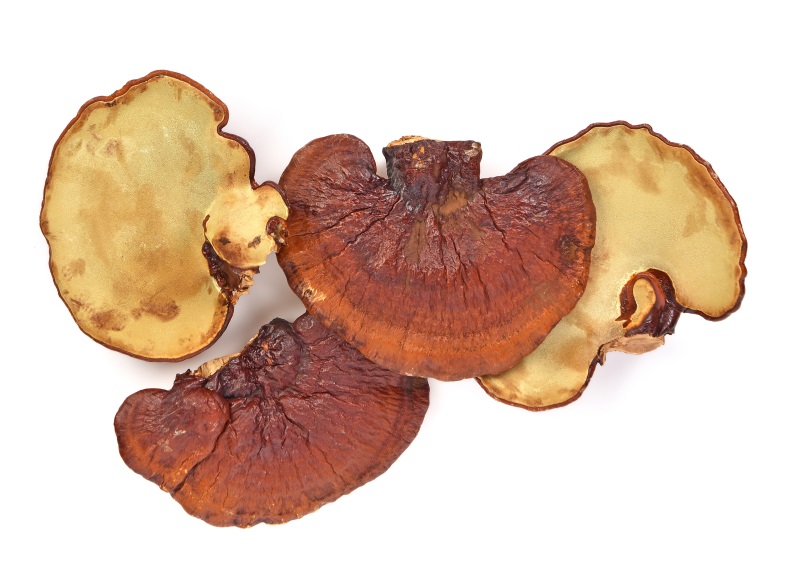
This mushroom has been revered for centuries in Asia. Historically it is a very rare mushroom to find in the wild - scientists estimate that out of every 10,000 trees where reishi could grow, you’ll only find three specimens. Thankfully, the mushroom can now be cultivated on a larger scale using organic substrates.
Generally, reishi is considered an immune system booster and provides overall wellness support*, promoting cardiovascular system health* and the body's ability to adapt to stress*.
Raw or dried reishi can be boiled into a tea. Most reishi supplements come in a tea, tincture or powder (encapsulated or loose) form.
Chaga
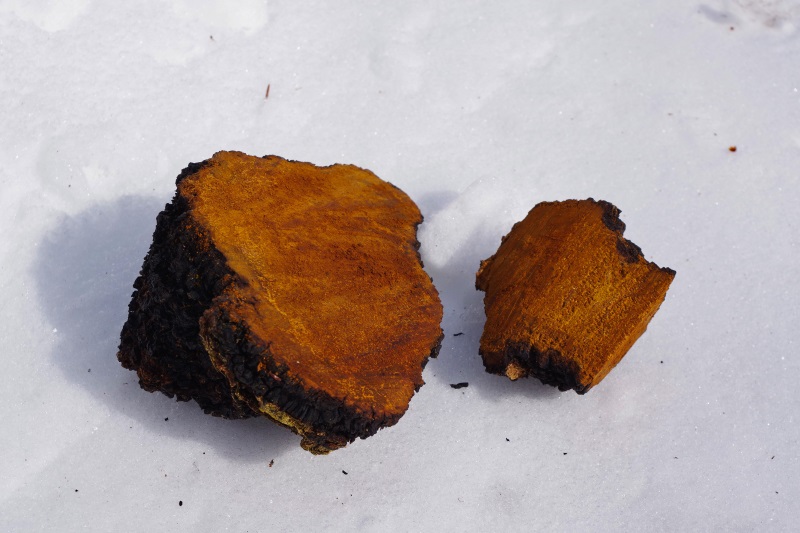
Chaga may not be the most beautiful mushroom on this list, but it has one of the oldest histories. Chaga is mostly found growing on birch trees (which is why it has such a long history in Russia), though it grows on other types of trees, as a big ‘conk’ growth on the outside of the tree. Commercial cultivation of chaga has been successful; however there have been chemical differences observed between wild and cultivated varieties.
Generally, chaga is known to be filled with antioxidants and is an overall immune system booster*.
Chaga is powdered and taken as a tea (the taste is often compared to an earthy coffee), or consumed in a capsule or tincture form.
Cordyceps
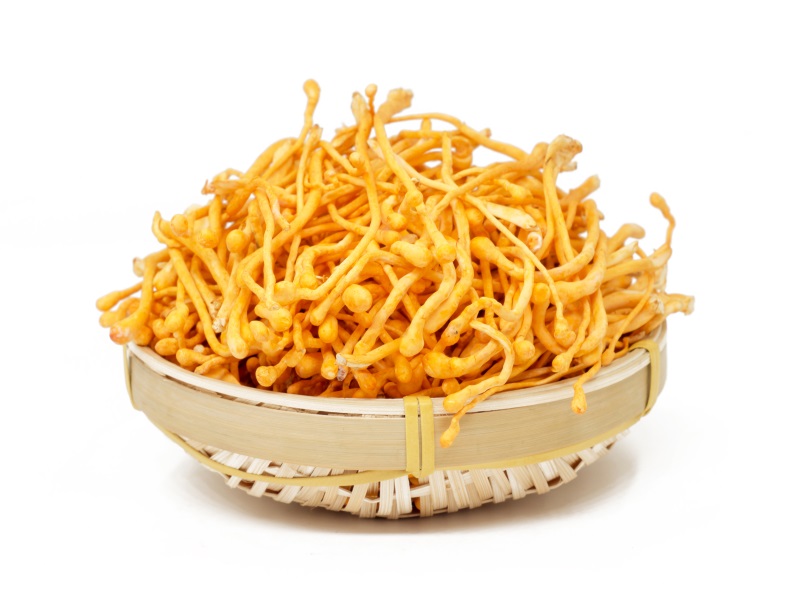
This is the most ‘sci-fi’ of all the mushrooms: several of the 400+ species are actually parasitic. Some modern cordyceps cultivation is a vegan process without needing any living hosts. Cordyceps (Cordyceps militaris) has been traditionally used in Asia for strenuous, high altitude activities and as an immune tonic.* Physical fitness enthusiasts and professional athletes have discovered that cordyceps may have the effect of increased oxygen uptake, supporting higher endurance levels.* People have also found that cordyceps supports healthy libido* and kidney function*.
Cordyceps is consumed traditionally as a raw, dried supplement to soups or stews. In powdered form it is taken as a tea, or in capsules or tincture form.
Lion’s Mane
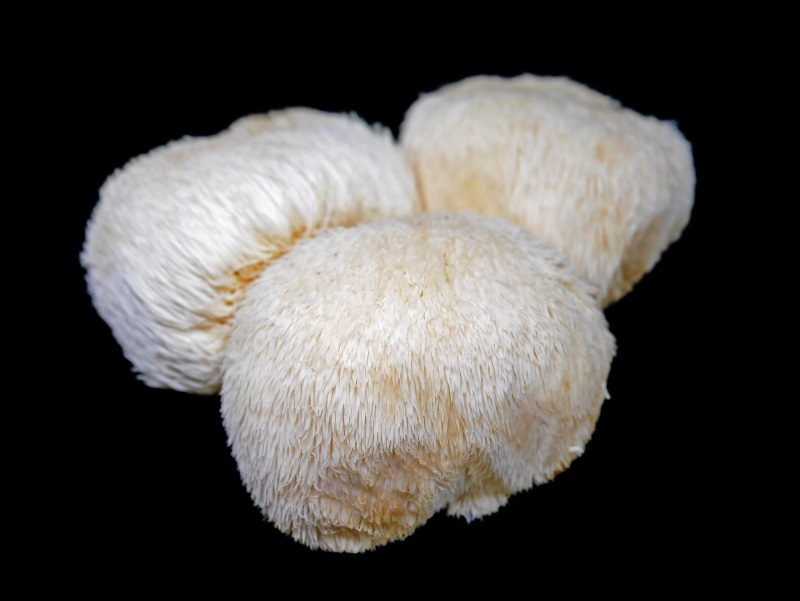
This is one of the most unique looking mushrooms: long tendrils hang from the main fruiting body, creating hundreds of mushroom 'icicles.' This bushy appearance gives the mushroom its common name.
Lion’s mane has been found to be helpful in the following ways: mental clarity, focus and memory in aiding overall cognitive function*; provides immune and nervous system support.*
Lion’s mane is most often consumed as a powder in tea or capsule form, or in a concentrated, standardized extract.
Turkey Tail
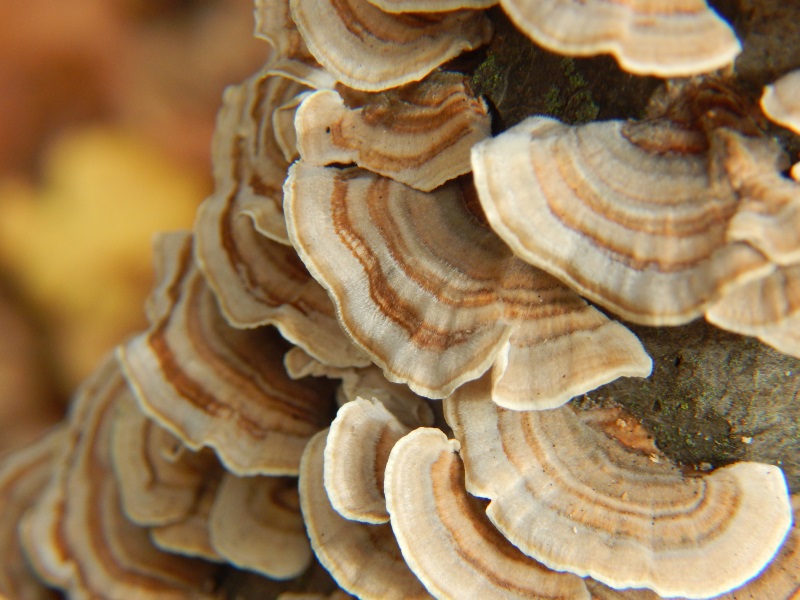
This pretty mushroom is named after the resemblance of the fruiting body to a wild turkey’s tail. Research shows this mushroom has been used medicinally since around 1368 by the Ming Dynasty.
Turkey Tail is an excellent source of cellular nutrients*, providing immune system support.*
Turkey tail is edible but quite chewy; most often it is consumed as a tea, or powdered capsule form.
Other beneficial mushrooms worth exploring:
Maitake
Enokitake
Shiitake
*These statements have not been evaluated by the Food and Drug Administration. This product is not intended to diagnose, treat, cure or prevent any disease.
More Co-op News

Meet Your Board: Melina Barker
Hello, Co-op members! My name is Melina Barker, and I joined the AFC Board of Directors this July. Since then, I have been busy learning about all the work the previous members have done to craft strategic goals to support the success of the AFC.

Smart Chicken® Holiday Giving in 2019
During the month of November, Co-op shoppers can nourish their own families and help fight hunger in the Rogue Valley.
Over the years, Smart Chicken® and Ashland Food Co-op have teamed up to donate thousands of pounds of chicken to ACCESS. Smart Chicken® will once again donate Smart Chicken® products based on the total volume that shoppers purchase at Ashland Food Co-op to ACCESS.
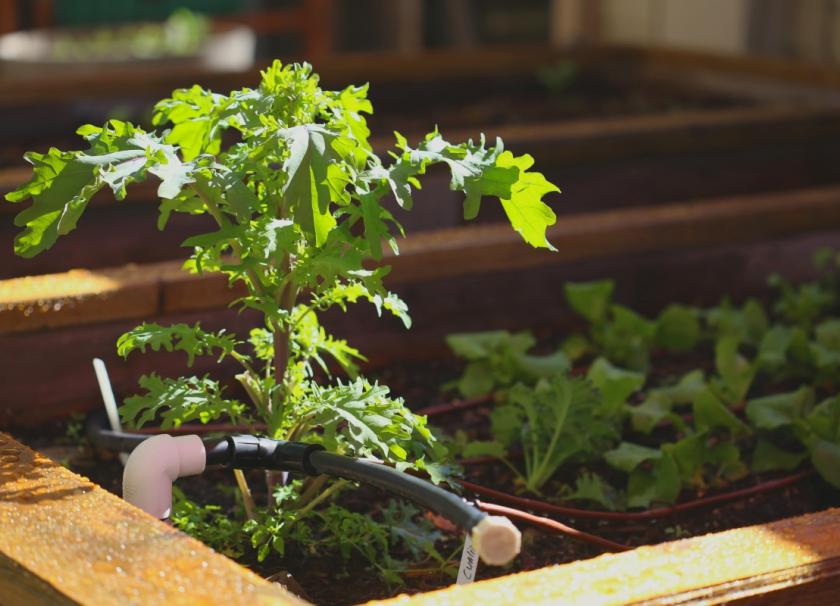
Henry in the Garden: Already Preparing for the Spring
The bane of all gardeners is powdery mildew - that white substance that collects both on the tops and bottoms of the leaves of your healthiest vegetable plants. Cucumbers and zucchini seem to be more easily affected by this scourge than many others.

GM Report: Gratitude for a Great 2019 at the Co-op
It’s the season of gratitude and reflection on the year that has passed, and there is so much to be thankful for as a Co-op owner.
2019 started off with the news that over $13,000 in emergency donations had been raised from Co-op owners and shoppers for support and relief efforts after Paradise, CA was leveled by a wildfire. This outpouring of our support was critical in the months after the fire, after the news trucks had left and the work of rebuilding began. I know how grateful we all are for the much calmer smoke season that our region experienced this summer.
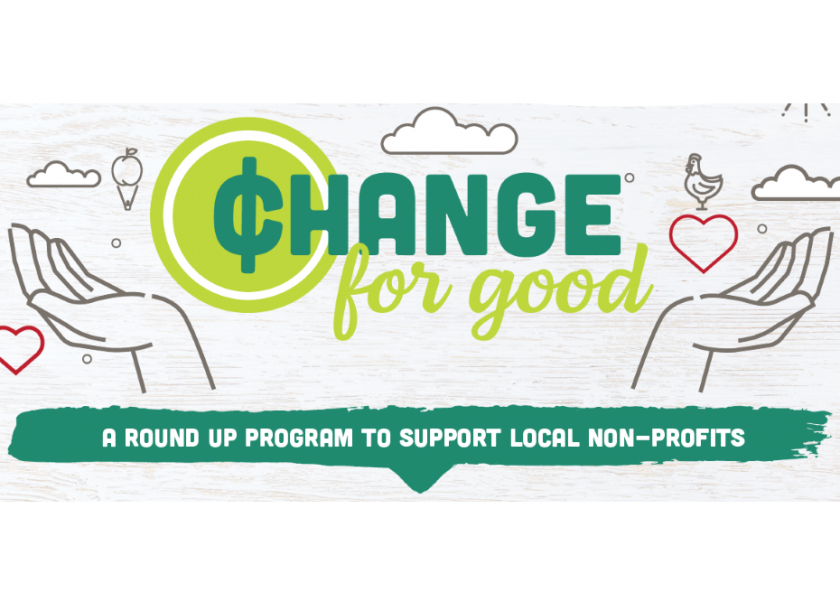
Rounding Up in October
Part of what makes co-ops unique are the guiding 7 Principles of Cooperation. One of the seven that is felt strongly in Ashland is "Concern for the community" - and that's why the Co-op is offering a new way to give back to our community for the month of October. When you pay at the register, you can round up your total to the nearest dollar. For example, $11.68 becomes $12, and $0.32 is donated.

Win 2 tickets to "Chicken Done Simply" cooking class
Find out how fun and educational Co-op cooking classes are! Sign up below for the chance to win two free seats (for you and a friend or loved one) at the next class, "Chicken Done Simply" with the Co-op's own Michelle Guerrie.

Fall Staff Picks
Thanks to alpine trails and shaded valley creeks, outdoor recreation is year-round in the Rogue Valley. But fall usually makes for more frisky feet, so we asked Co-op employees for their favorite fall activities and recommendations for what they grab before they head out.

Applegate products joining Co-op Basics
Just in time for the school year, Applegate products are being added to the Co-op Basics program! The Co-op carries a variety of Applegate products, like sliced deli meat, cheeses, bacon, and sausages. Now as part of the Co-op Basics program, you’ll be saving up to $2 on Applegate products across the store, every day.

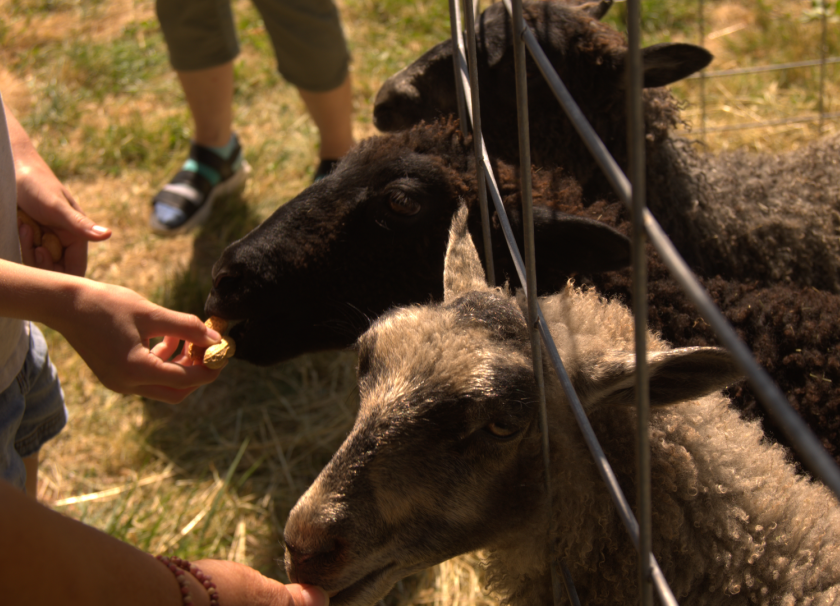
2019 Farm Tour Recap
Another successful farm tour is in the books! With 30 farms this year, visitors could see how bigger farms work, like Herb Pharm, Fry Family Farm, and Rogue Creamery, while also experiencing the joys of smaller farms, such as Turning Point Farm, Fox Run Farm, and Daily Blessing Farm.
Visitors of all ages enjoying Goodwin Creek Gardens
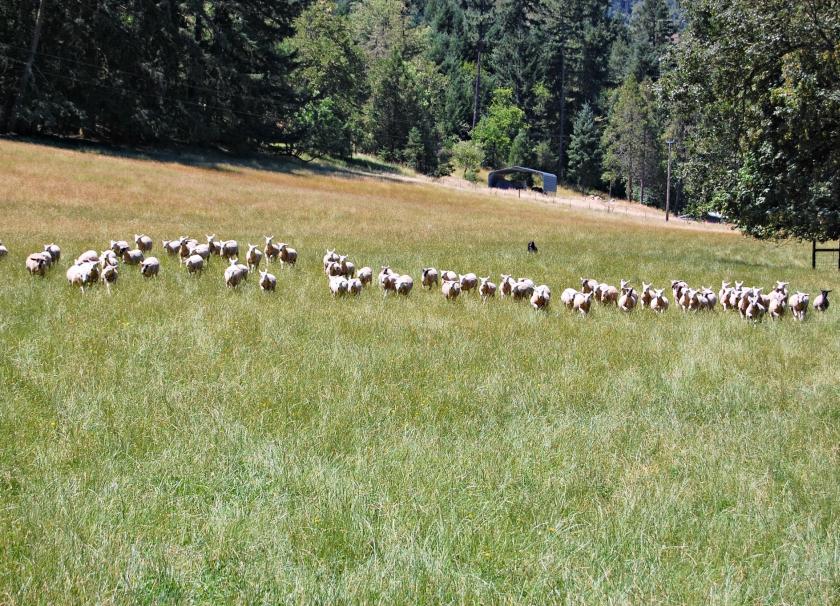
AFC Celebrates 20 Years with Magnolia Farms
This year, the Ashland Food Co-op proudly celebrates their 20 year partnership with Magnolia Farms. Their pasture raised, no antibiotics, no hormones lamb is a staple in the Co-op Meat Department. Magnolia Farms is graciously donating the lamb for our August First Friday in celebration of our long standing partnership.
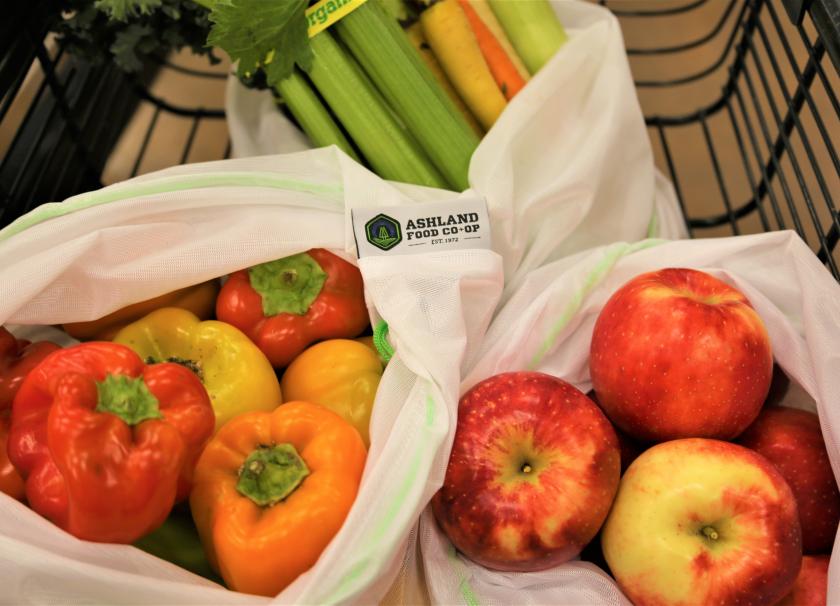
Compostable Bags
The Co-op has been asked if compostable plastic bags are a viable alternative to the standard plastic bags offered in the produce and meat departments.
For several reasons, compostable bags are not in line with the Co-op’s goals and standards.
Not compostable at home
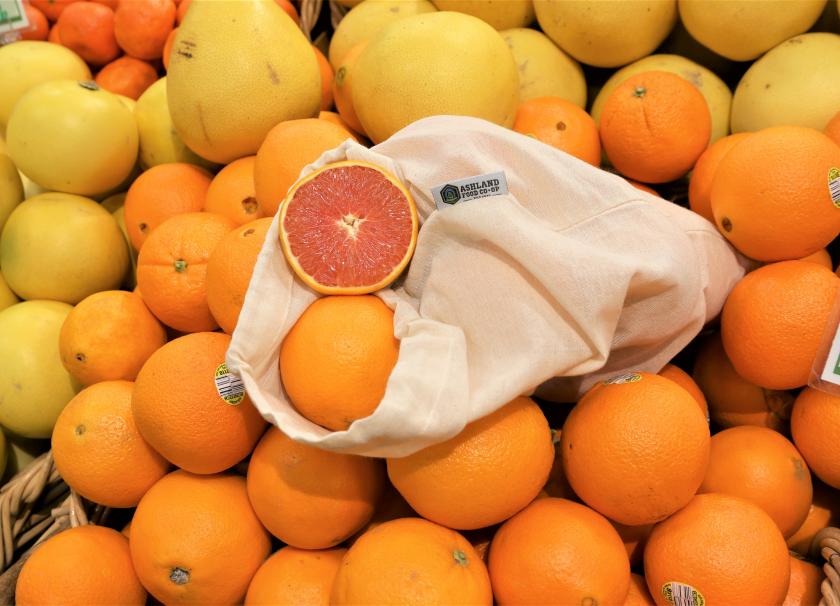
Sustainability Update: Energy efficiency and zero waste
Energy Efficiency
We are happy to announce that we are a member of the Energy Trust of Oregon’s Strategic Energy Management program. This is a free program available to customers of Avista and Pacific Power, which offers awesome incentives including a paid internship!
Community Grant Recipients 2019
The Ashland Food Co-op donated over $29,000 to 28 local nonprofit organizations through their Community Grant Program.
The Community Grant program is the focus of one of the fundamental Cooperative Principles, which all cooperative enterprises follow. Our Community Grant Program supports Principle 7, Concern for Community.

Meet the 2019 Board of Directors
Congratulations to Annie Hoy, Melina Barker, Lisa Beam, and Steve Bowman for their election to the Board of Directors! We were delighted to have such a strong slate of candidates to fill our four vacancies. You can read more about each new director here.

How to stay sustainable with paper products
Have you thought about how sustainable your paper home products are? While the use of single-use plastics has (rightfully) been criticized, some products are made to be single-use - like toilet paper, paper towels, and napkins. With these products, it’s best to examine sustainability by looking at what goes into their production.
